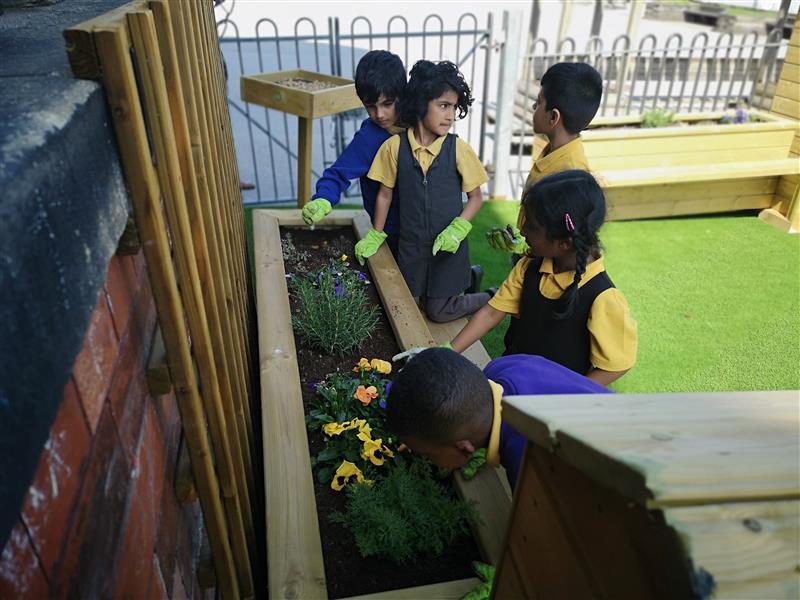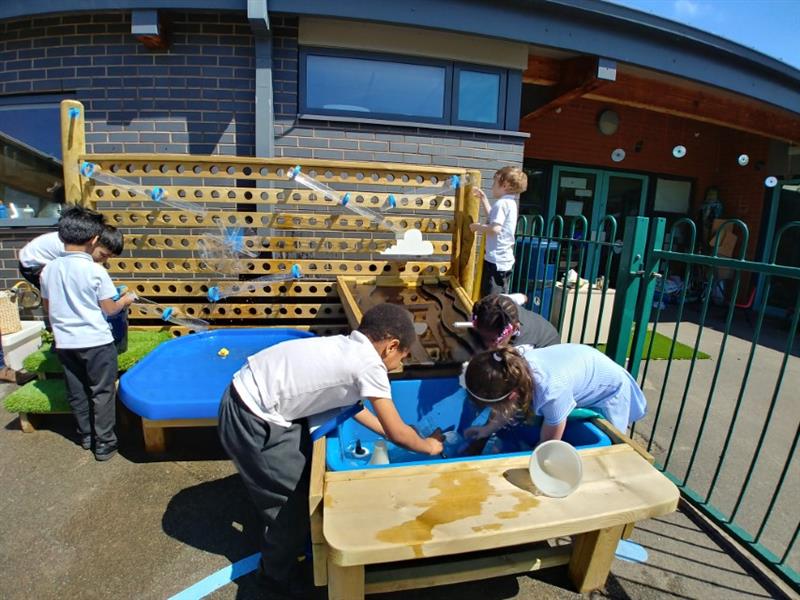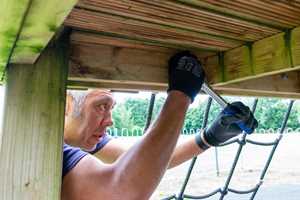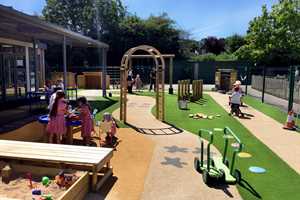Playground Design
How Primary Schools Can Tackle Climate Change on the Playground
Outdoor play is vital in the fight against climate change. Why? Because our children are the future of our planet. How can we possibly expect our children to fight to protect it, to protect nature and the great outdoors, if they don’t even know what it is they’re fighting for?
Children spend so much of their time at school, so schools have a responsibility to make sure they get outside frequently (don’t worry, we’ll come to parents’ responsibility later!).
This isn’t just to safeguard the environment: outdoor learning and play is fundamental for a child’s health and development and the outdoors is the best teaching environment for hands-on, investigative learning.
Outdoor activities already feature high on the agenda at most schools for these reasons alone. However, by encouraging daily outdoor play and actively exposing children to the outdoors, many schools are inadvertently also playing their part in teaching children about the environment (and how to look after it) already. That’s a great start made simple!
There are two different elements to this message. On the one hand, it’s about encouraging today’s children to get outside for their own benefit, to protect their health, to learn, and to develop an understanding of the natural world.
On the other hand, it’s about promoting every child’s right to play in a healthy environment, now and in years to come, by fighting climate change.
Climate change linked to pollution can be deadly and we’re already seeing some of the devastating effects. The World Health Organisation reports that nearly 2 million children under the age of 5 die every year as a result of respiratory infections caused by air pollution and contaminated water.
Emerging environmental hazards, including chemicals and climate change, pose a huge threat to children’s health. Climate change brings with it floods, droughts and hurricanes in many parts of the world. These destroy infrastructure, food, water supplies and housing.
Families have to flee their homes, diseases spread, and young children are usually the first to suffer. The message is clear: to protect children around the world, we must protect our planet, too.
And if we’re going to achieve this, we need to ask ourselves some tricky questions.
How are we raising our children to protect our planet? Are they connected to nature? Do they have enough exposure to the natural world to be able to understand it? Are they confident, resilient and engaged enough to take this on?
You don’t have to look hard to find research and reports to suggest that they might not be. There is plenty of evidence out there warning that our children aren’t spending enough time outdoors, enjoying unstructured play outside of school hours (we said we’d come to the parents’ responsibility!).
Safety fears, being too busy with scheduled activities, inadequate facilities or handheld devices - it’s no good playing the blame game because there’s no one thing at fault, and anyway, there isn’t time to dwell on that.
It’s just the way things have become, but it does paint a worrying picture. We need more insistence from society as a whole that children switch off their devices, take time out of organised clubs and classes to go outside and play and get to know the natural world around them.
During term time, there is plenty that schools and nurseries can do to get children playing and learning outdoors every day. Lunchtimes and breaks are a given for unstructured outdoor play.
Thankfully, there has been something of a revolution in outdoor learning over the past decade. There is no shortage of Playground Resources and lesson ideas out there which can help teachers to teach almost the entire primary curriculum outdoors if they want to.
Some schools have set up their own “Turn off Your Engines” initiatives, which serve as a brilliant daily reminder to parents and children about the perils of pollution and climate change.
Posting a polite notice at the school gates and a regular reminder in the school newsletter asking parents to turn off their engines during pick-up and drop-off time, instead of waiting in line chugging out fumes, is very simple to do, but makes a huge difference to young lungs.
If every school can do this, it will start to add up. It could helps to focus the mind on the environment, too as it’s one of the first things children see as they come into school in the morning, and it’s there again as they leave at the end of the day.

It gets them thinking about their environment, asking questions and developing an interest - feeling protective of, and taking responsibility for, their own outdoor areas.
It seeps through into the rest of their day and they’ll soon be reminding their parents to turn their engines off themselves!
When children are outdoors digging in the soil, making mud pies, examining minibeasts, listening out for birds, reading under the shade of a tree, hiding in the grass, building dens out of wood, experimenting with water and sand, growing their own plants and flowers, feeling the sun’s warmth on their faces and finding out what else that energy can do, observing tadpoles becoming frogs and caterpillars becoming butterflies, splashing in the rain and discovering where it comes from - all those wonderful things that outdoor play and learning encompass - that’s when they’re really immersed in their environment.
They’re exploring it, learning from it, and subconsciously developing a love and appreciation for everything it has to offer.
So when they learn that it’s under threat, our children will grow up wanting to do everything they can to protect our planet. By allowing this to happen, schools can perhaps play their most important part in the fight against climate change.
We haven’t written this to try and persuade you to buy any of our specific products (although of course we’re always delighted when you do!). We’ve seen enough crazy pitches saying “Buy more of our stuff to protect the environment and stop climate change!” and it puts us on edge - if it were as simple as that we’d all be living in Utopia by now!
However, if you would like to find out how we can help your school or nursery improve their outdoor space, to get children outside every day, then please do Contact Us. We’d love to hear from you.







